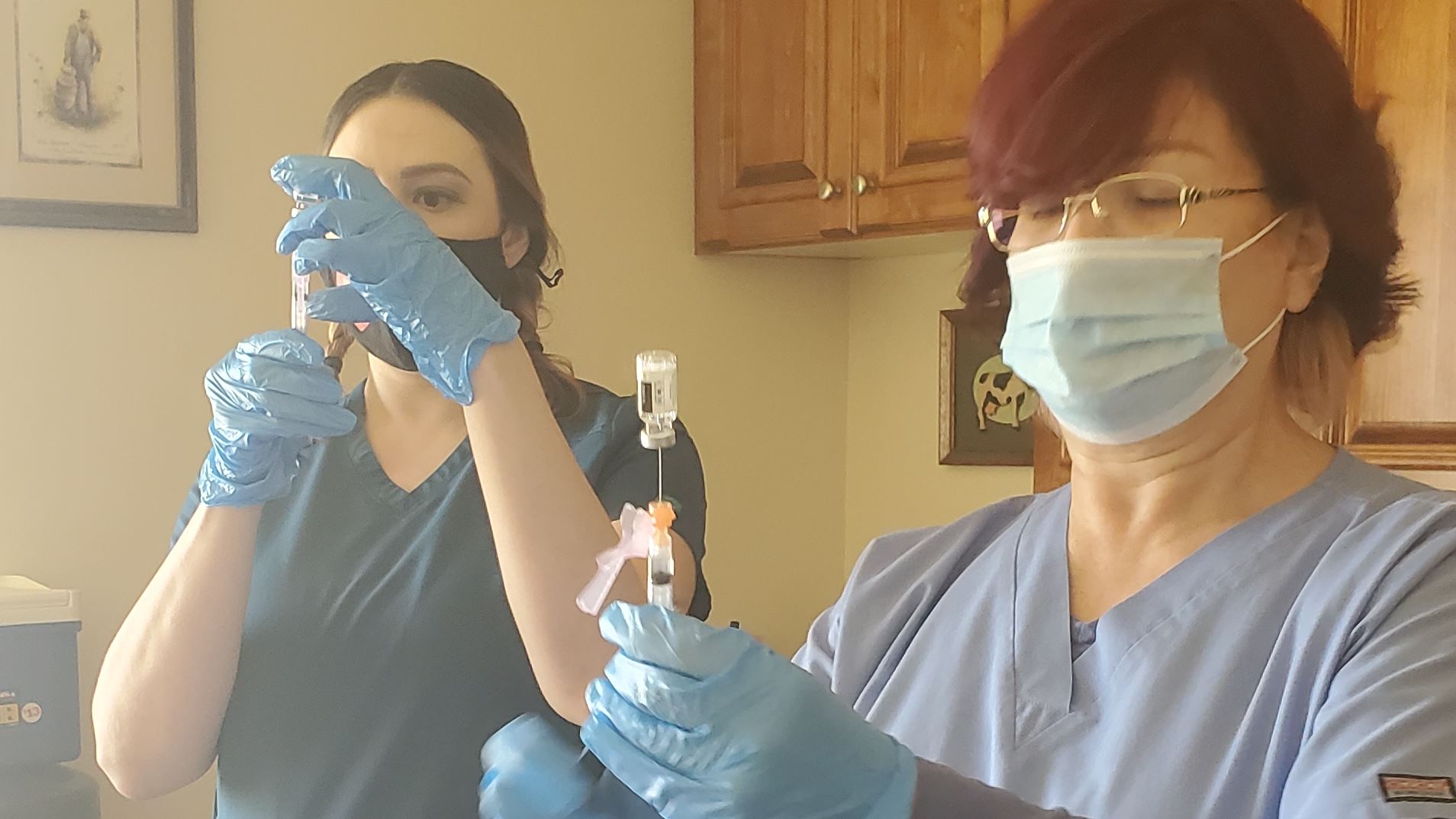New Mexico State University’s Cooperative Extension Service and the New Mexico Department of Health are offering mobile vaccination clinics to agricultural producers and workers. This health project provides educational information about COVID-19 and vaccinations for the virus. The first mobile vaccination clinic was conducted May 18 at a dairy farm in Doña Ana County.
The New Mexico Department of Health was on site and conducted COVID-19 vaccinations for workers and their family members who wanted to receive the vaccine. NMSU’s Cooperative Extension, which is housed in the College of Agricultural, Consumer and Environmental Sciences, helped to coordinate the clinic with the dairy producers as part of an immunization education project called EXCITE, or Extension Collaborative Immunization Training and Engagement.
With funding from a Centers for Disease Control and Prevention grant, EXCITE aims to help inform and educate communities across New Mexico about vaccine education, and the mobile vaccination clinics are a way to address health disparities among rural and other underserved communities, said Sonja Koukel, professor and NMSU Extension Health Specialist.
NMSU’s Cooperative Extension representatives hope to schedule additional events with agricultural industries throughout the state.
“This is where Extension can really play an important role, reaching out to those rural communities,” said Robert Hagevoort, associate professor and Extension dairy specialist. “We know those people; we live in those communities; and we understand those businesses.”
Hagevoort said traveling to dairies is key to reaching that segment of the population because they are often located in rural parts of the state. While the mobile vaccination clinics for dairy workers started in the New Mexico Department of Health southwest region, about 80 percent of dairies in New Mexico are in the Department of Health southeast region, primarily in Curry, Roosevelt, Chavez, Eddy and Lea Counties.
Work on a dairy is labor intensive, and the New Mexico Department of Health is using the Johnson & Johnson vaccine, which is a one dose vaccination. Educational information about the vaccine is first provided to workers and is available in English, Spanish and K’iche, a commonly spoken language in Central America. Educational materials for dairy workers have been developed with an U.S. Department of Agriculture-National Institute of Food and Agriculture grant in collaboration with the medical team at the University of Texas School of Public Health. NMSU Dairy Extension has these materials available on its website, as well as on iPads for individual training and can provide educational sessions prior to the clinic.
While the mobile vaccination clinics lowers the barriers to access for dairy workers, Hagevoort said as a result of the pandemic he hopes collaborations will continue and can provide preventative health care to agricultural workers.
“Maybe COVID opened that window to work with our health departments and health organizations to provide that kind of access,” Hagevoort said.

